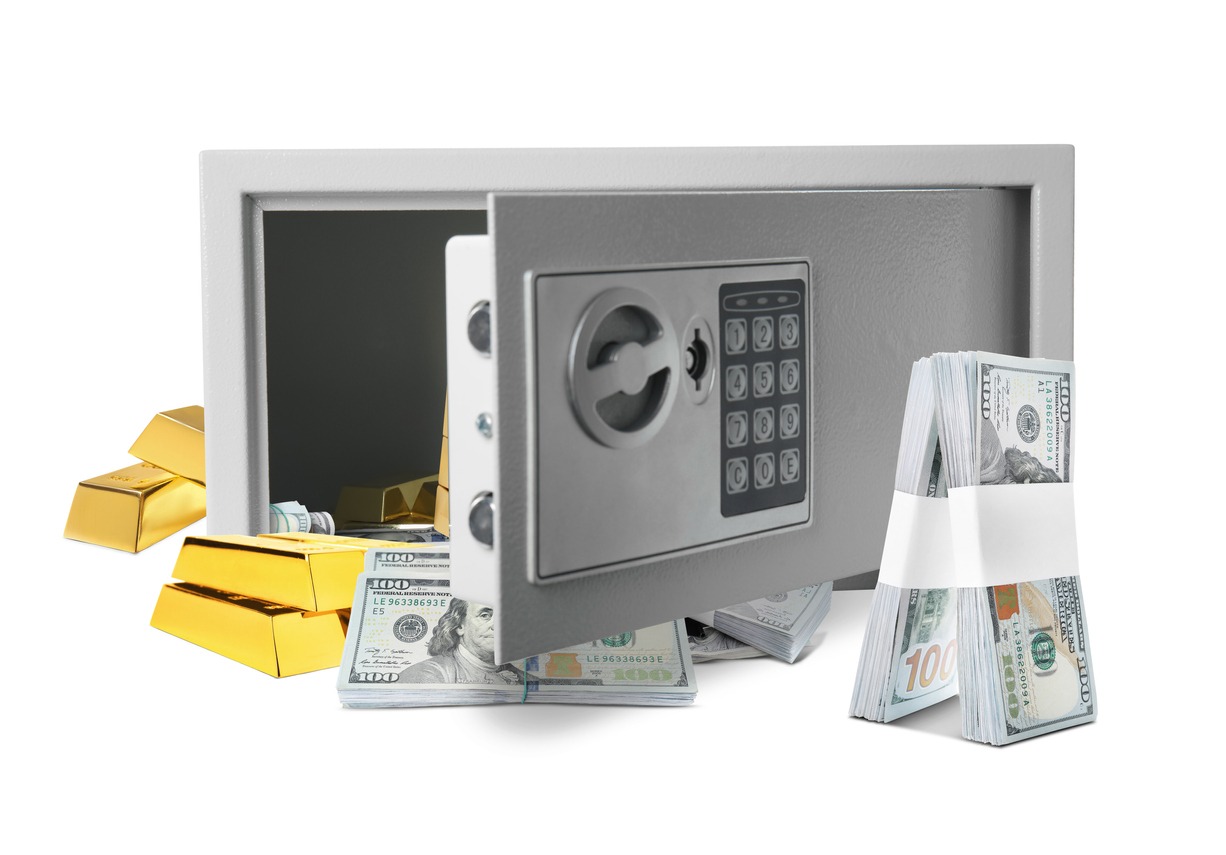When searching for the safest place to store jewellery and other valuables, several options are available depending on your preferences and budget. One option is to use the safety deposit box at your local bank. However, this method may not provide the convenience that you need. Alternatively, you can also buy a home safe that offers the high-quality design
and convenience that the safety deposit box cannot provide. Will it be as secure as an institution that pays for round-the-clock security? Which is the best option for your needs?
Advantages and Disadvantages of Safety Deposit Box vs. Home Safe
Safety Deposit Box
The main advantage of the safety deposit box is the additional security that the vault and the bank building offer. However, this additional security can also mean that you may have problems accessing your valuables when you need them. For example, access to the safety deposit box can be obtained only during the bank’s opening hours. Not to mention, adding or removing authorised users from the list of people who can access your safety deposit box can be a hassle. Another drawback of the safety deposit box is that it may not be protected against water damage if the bank is flooded or the sprinkler system is damaged. Plus, it can also be used for illegal purposes. There is also a monthly fee for a safety deposit box that can really add up over the years.
Home Safes
Home safes are great for several reasons, including the fact that they are always close by and easily accessible 24/7. When embedded in the floor, the thief cannot easily find it or leave with it. However, if they are small enough, they can simply be taken away by the criminal and broken down at a more convenient time. Additionally, you don’t have to pay monthly rental charges; you pay a one-time fee for the purchase of the home safe. On the other hand, home safes have disadvantages such as low fire rating, which cannot properly protect the contents of the safe in the event of a fire. Even though most safes are rated as waterproof, they are actually just water-resistant, which means water can often damage the contents. Also, the contents of the safe are not legally protected after the death of the owner, and anyone with access can simply take the valuables for themselves.
One advantage that stands out the most with home safes is that you don’t have to go to the bank to pick up your items if you need them in a hurry. Home safes are convenient for storing valuables and items that you use often.
Making the Right Choice
While it is true that both options have unique pros and cons, one of the most important things to consider when it comes to choosing between a home safe and a safety deposit box in the bank is how frequently you need to use the items being stored. If your jewellery and other valuables are things that you use often, sometimes with short notice, a home safe will be your best option. If you rarely use what you want to safeguard, then you will be best served by a safe deposit box.
It is, however, a good idea to insure the content of your home safe and even the content of your home in general, as this will reduce the financial burden should your valuables get stolen or damaged. It is important to get reputable companies like State Insurance to provide cover for you. There are various levels of content insurance designed for this purpose, so you’d do well to find the one that is most suitable for you.
That said, if after reading this, you are still finding it difficult to decide between a home safe and a safety deposit box, you can use both systems to divide your valuables and determine what goes where.
What to Keep in a Home Safe
All the valuables you need to have access to at all times, such as your passport, emergency cash, or frequently used jewellery, should be kept in a secure, high-quality home safe. You can also keep copies of important documents, such as a will and power of attorney, at home; make sure you also keep copies with a lawyer as well.
What to Keep in a Safety Deposit Box
A safety deposit box in the bank is a good place for important papers and documents that you don’t need to use often. Examples include your birth certificate, marriage certificate, stock information, and bond certificates. Many people think that if you put things in the safety deposit box, the contents are covered by the bank’s insurance. However, this is not always true. Unless the bank takes out a specific policy for safety deposit box contents, the insurance only covers money held in the bank. Your safety deposit box is not insured. On the other hand, things can be insured in your safe provided you have home insurance.
Wrapping up
As you can see, both solutions can be ideal depending on certain circumstances. Simply consider your unique needs, budget, and how often you need your valuables to determine the best choice for you.

